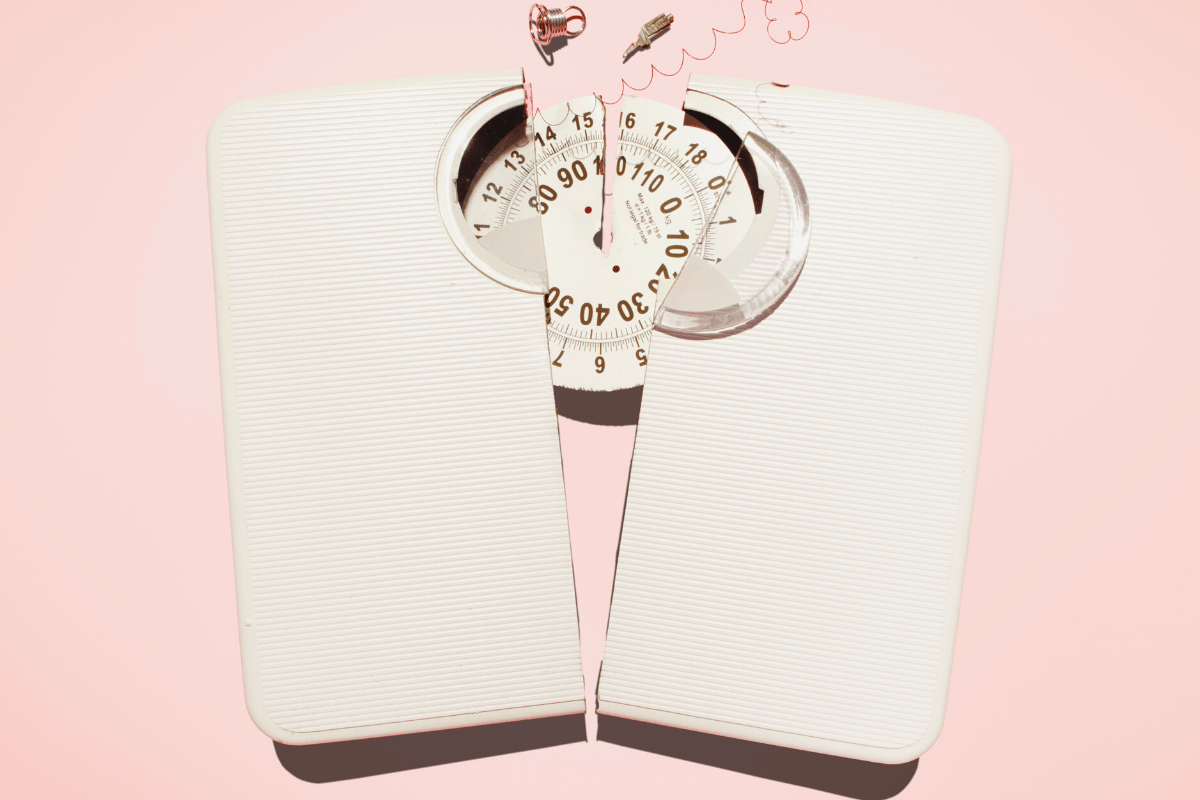
This post deals with disordered eating and body image and might be triggering for some readers.
In a viral post within a Mamamia Facebook Group - Mamamia Outlouders - mum Leah shared the story of her nine-year-old daughter and classmates being publicly weighed at school.
"How is this still even allowed to happen?" Leah said.
"They were all asked to weigh themselves at school today as part of their phys ed class. Whilst the teacher told them 'it doesn't matter what the number is' to me, the activity itself is so insanely problematic. There were comparisons, commenting on other people's numbers and calling out the heaviest kids as 'fat'," she continued.
Leah had to have a long conversation afterward with her daughter about self-worth and body image, hoping that what happened at school today doesn't have a lasting impact. She's not alone.
Almost 200 women have shared their horror at the situation and their own similar stories.
Watch: Negative Self Talk | Butterly Foundation. Post continues below.

Top Comments